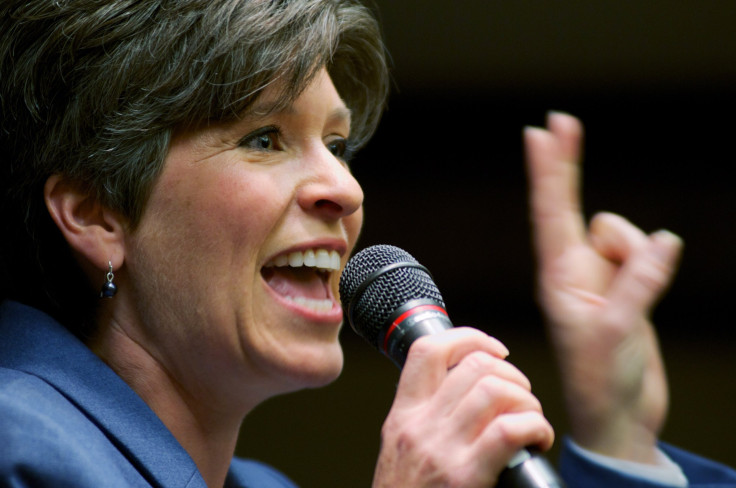Midterms 2104: For 2016, Can The Republicans Solve Their 'Women Problem'?

Take a deeper dive into Tuesday’s night election results and it becomes clear that while Republicans scored big wins in Senate races, there is a glaring problem the GOP needs to address before 2016: Women aren’t voting for Republicans. In 2010, during the last midterm Republican sweep, the GOP took a slight majority of women. But not this year. Women voted for more Democrats than Republicans.
Winning in a low turnout midterm election while still losing women is no easy feat. The Republicans managed it by locking down white men, and benefiting from the usual midterm low turnout of Democratic-leaning young voters and Latinos. But securing the White House in 2016 without winning, or at least improving the margins, among women, could be near impossible -- especially if Democrats nominate Hillary Clinton, who will offer the possibility of breaking that last glass ceiling, as she calls it.
That puts pressure on the GOP to find women candidates of its own.
This year the GOP put forward two women, Senate candidates Joni Ernst and Shelly Moore Capito, whose victories bring the number of Republican women in the upper chamber to six. The Democrats had 16 in the last session (one lost on Tuesday, another is locked in a tight runoff).
The party is trying to grow its grassroots.
Puerto Rico Gov. Luis Fortuno, who heads the Republican State Leadership Committee, touted his organization's ability to recruit more women candidates for state legislatures and state offices this year. “We made a special effort to recruit and get elected more diverse and female candidates across the country,” Fortuno said. “We broke some glass ceilings there.”
Rep. Greg Walden, of Oregon who chaired the National Republican Congressional Committee this cycle, said the GOP’s appeal to women will continue to grow.
“The women who are coming in, a very talented group, they will help us grow the women that we have in the next cycle,” Walden said. “We’re making big progress but we have to continue to always work on it. We have to continue to focus on recruiting good women candidates.”
As it stands now, no female Republicans candidates are seriously considered possible 2016 candidates. There are a handful whose names are being tossed around as potential running mates to the cast of men from which a presidential nominee is likely to be selected.
New Mexico Republican Gov. Susana Martinez’s name was floated as a possible 2016 running mate to Mitt Romney. She easily secured re-election on Tuesday night. Martinez burst on to the national scene in 2012 when she spoke at the Republican National Convention, discussing her decision in 1995 to switch from being a Democrat to a Republican.
Martinez carries another added benefit for those parsing the demographic vote -- she’s Hispanic. Even while other Republican governors were suffering from declining popularity, Martinez has remained one of the most popular governors in the nation.
South Carolina Gov. Nikki Haley, who won re-election, has also been discussed as a potential running mate for a future candidate.
Sen. Kelly Ayotte of New Hampshire was on Mitt Romney’s short list for a vice presidential nominee in 2012. She offered the potential to help deliver her swing state. She has carved a place for herself in the Senate working on foreign affairs, joining fellow Republican Sens. Lindsey Graham and John McCain to form the newest iteration of the “Three Amigos.”
There are women in the House who have taken on leadership roles that could set them up for bigger roles in the future.
Washington Rep. Cathy McMorris Rodgers serves as the chair of the House Republican Conference and last year delivered the GOP response to the State of the Union address.
Rep. Marsha Blackburn, of Tennessee, served as the head of the platform committee in 2012 for the Republican National Committee. She has served a key role in her party, taking the lead on legislation that Democrats have tried to use as wedge issues for women voters, like abortion.
The Republicans tried in this last election cycle to stay quiet on divisive topics in order not to alienate women voters. The strategy helped: The GOP actually got through the campaign without making headlines about "legitimate rape" or the like. But avoiding offense -- and playing defense -- isn't likely to be enough to take a majority of women voters away from the Democrats.
© Copyright IBTimes 2024. All rights reserved.






















